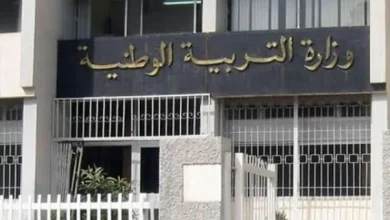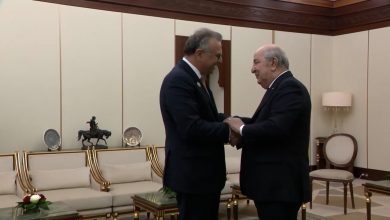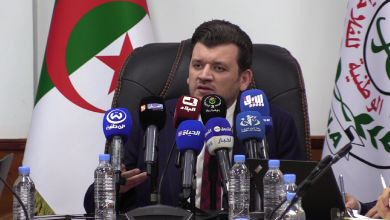Abidjan, Ivory Coast – Polling stations across Ivory Coast closed their doors on Thursday evening, marking the end of a day of voting in the highly anticipated presidential election. Millions of Ivorians are now holding their breath as the vote counting process gets underway, with the outcome set to shape the country’s political landscape for years to come.
Over 8.7 million registered voters were eligible to cast their ballots, choosing from a field of five candidates. The frontrunner is incumbent President Alassane Ouattara, seeking a controversial fourth term in office. He faces challenges from Jean-Louis Billon, Ahoussou Kouadio Jeannot, Henriette Lagou Adjoua, and Simone Gbagbo, the former First Lady and wife of ex-President Laurent Gbagbo.
While the presence of multiple candidates suggests a vibrant democracy, the political atmosphere has been fraught with tension. The exclusion of prominent figures like former President Laurent Gbagbo and influential politician Tidjane Thiam from the race has fueled accusations of political maneuvering. The opposition has decried these exclusions as a deliberate strategy to pave the way for Ouattara’s continued rule, labeling it “systematic elimination.” The government, however, maintains that the decisions were based on legal grounds and prior judicial rulings.
Initial reports from local and regional observers indicate that voting proceeded relatively smoothly and peacefully across much of the country. However, isolated incidents of unrest were reported. Clashes between young people and security forces occurred in the town of Lopou, near Dabou in the south. The National Human Rights Council reported that voting was suspended in Mama, the hometown of former President Gbagbo, after some ballot boxes were vandalized. The specific details of the vandalism and the extent of its impact on the overall election in Mama remain unclear.
In response to the potential for unrest, authorities deployed approximately 40,000 security personnel to secure the election. These forces were stationed at over 25,000 polling stations nationwide, tasked with maintaining order and ensuring the safety of voters and election officials. The Independent Electoral Commission (CEI) has announced that preliminary results are expected to be released gradually in the coming hours. However, concerns remain that delays in announcing the results or challenges to the validity of the vote could trigger renewed political tensions.
The lead-up to the election was marred by sporadic violence. During the campaign period, at least four people, including a police officer, were killed in election-related incidents. Over 700 people were arrested, and dozens have already been sentenced to three-year prison terms for participating in unauthorized demonstrations. These events have contributed to a climate of fear and uncertainty, raising concerns about the potential for further instability.
President Ouattara’s decision to seek a fourth term has been particularly contentious. While his supporters point to his economic achievements and his role in stabilizing the country after years of political turmoil, his opponents argue that he is violating the constitution, which limits presidents to two terms. Ouattara initially stated that he would not seek re-election but changed his mind after the death of his chosen successor, Prime Minister Amadou Gon Coulibaly.
For more information about Algeria, check our dedicated section.
The exclusion of Laurent Gbagbo and Tidjane Thiam from the ballot has further complicated the situation. Gbagbo, who was acquitted of war crimes charges by the International Criminal Court (ICC), was barred from running due to a previous conviction in Ivory Coast. Thiam, a former Credit Suisse CEO, was also deemed ineligible due to questions surrounding his eligibility to be registered to vote. These decisions have been met with strong criticism from the opposition, who claim that they are politically motivated.
The Ivorian presidential election is being closely watched by the international community. The outcome will have significant implications for the stability and development of Ivory Coast, as well as the broader West African region. The United Nations, the African Union, and other international organizations have sent observers to monitor the election and ensure that it is conducted in a fair and transparent manner.
The focus now shifts to the Independent Electoral Commission (CEI), which is responsible for counting the votes and announcing the results. The CEI faces a daunting task, as it must ensure that the process is accurate and transparent in order to maintain public trust. Any perceived irregularities could lead to protests and violence.
As the vote counting gets underway, the people of Ivory Coast are anxiously awaiting the results. The outcome of this election will determine the country’s future and shape its political trajectory for years to come. The hope is that the process will be conducted peacefully and transparently, and that the results will be accepted by all parties involved. However, the potential for renewed tensions remains high, and the coming days will be critical in determining whether Ivory Coast can move forward on a path of peace and stability.
The election is a crucial test for Ivorian democracy. It is essential that the voices of the Ivorian people are heard and respected. The international community must continue to monitor the situation closely and provide support to ensure that the election is conducted in a fair and transparent manner. The future of Ivory Coast depends on it.
Ultimately, the success of this election will depend on the willingness of all parties to respect the rule of law and to resolve any disputes through peaceful means. The people of Ivory Coast deserve a future free from violence and instability, and it is the responsibility of all stakeholders to work together to achieve that goal. The next few days will be a defining moment for Ivory Coast, and the world will be watching closely.



